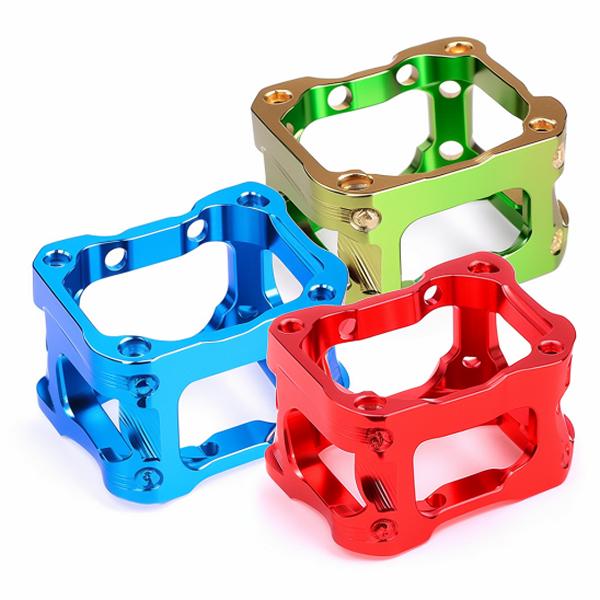Alcast Company Fundamentals Explained
Alcast Company Fundamentals Explained
Blog Article
The Ultimate Guide To Alcast Company
Table of ContentsThe smart Trick of Alcast Company That Nobody is DiscussingAlcast Company Things To Know Before You Get ThisThe Only Guide for Alcast CompanyAlcast Company - An OverviewThe Ultimate Guide To Alcast CompanyThe Main Principles Of Alcast Company
Chemical Comparison of Cast Aluminum Alloys Silicon advertises castability by minimizing the alloy's melting temperature and enhancing fluidity throughout spreading. In addition, silicon adds to the alloy's strength and wear resistance, making it valuable in applications where toughness is crucial, such as automobile parts and engine parts.It also boosts the machinability of the alloy, making it less complicated to refine into finished products. In this means, iron contributes to the overall workability of aluminum alloys.
Manganese contributes to the toughness of light weight aluminum alloys and enhances workability (aluminum foundry). It is generally made use of in wrought aluminum items like sheets, extrusions, and profiles. The presence of manganese help in the alloy's formability and resistance to splitting during manufacture processes. Magnesium is a light-weight element that supplies strength and impact resistance to light weight aluminum alloys.
Examine This Report about Alcast Company
Zinc boosts the castability of aluminum alloys and aids regulate the solidification process during casting. It enhances the alloy's strength and hardness.

The key thermal conductivity, tensile stamina, return stamina, and prolongation vary. Select appropriate raw products according to the efficiency of the target item produced. Among the above alloys, A356 has the highest thermal conductivity, and A380 and ADC12 have the most affordable. The tensile restriction is the contrary. A360 has the very best return stamina and the highest elongation rate.
All about Alcast Company

In accuracy casting, 6063 is fit for applications where intricate geometries and top notch surface coatings are critical. Instances include telecommunication rooms, where the alloy's remarkable formability enables smooth and cosmetically pleasing designs while keeping architectural honesty. Similarly, in the Lights Solutions sector, precision-cast 6063 elements produce elegant and efficient lighting components that need intricate forms useful content and excellent thermal performance.
The A360 displays exceptional prolongation, making it optimal for facility and thin-walled components. In precision spreading applications, A360 is fit for markets such as Customer Electronic Devices, Telecommunication, and Power Tools.
The Buzz on Alcast Company
Its special buildings make A360 a beneficial choice for precision casting in these industries, enhancing product toughness and quality. Aluminum alloy 380, or A380, is a widely utilized spreading alloy with numerous unique characteristics. It provides superb castability, making it an ideal selection for precision spreading. A380 displays great fluidness when molten, guaranteeing intricate and in-depth molds are precisely duplicated.
In precision spreading, light weight aluminum 413 shines in the Customer Electronic Devices and Power Equipment markets. It's frequently made use of to craft detailed parts like smartphone housings, cam bodies, and power device coverings. Its precision is remarkable, with limited tolerances up to 0.01 mm, ensuring flawless product assembly. This alloy's remarkable corrosion resistance makes it an excellent selection for outside applications, ensuring durable, long lasting products in the stated industries.
How Alcast Company can Save You Time, Stress, and Money.
The aluminum alloy you pick will significantly impact both the casting process and the residential or commercial properties of the final item. Since of this, you must make your choice meticulously and take an informed strategy.
Identifying the most appropriate light weight aluminum alloy for your application will certainly suggest considering a vast range of features. These comparative alloy features follow the North American Die Casting Organization's standards, and we've split them right into two categories. The first category addresses alloy qualities that impact the manufacturing process. The second covers qualities affecting the properties of the end product.
Unknown Facts About Alcast Company
The alloy you select for die casting directly influences numerous facets of the spreading process, like how very easy the alloy is to collaborate with and if it is susceptible to casting flaws. Hot splitting, likewise called solidification breaking, is a common die casting flaw for light weight aluminum alloys that can cause internal or surface-level rips or cracks.
Certain aluminum alloys are more at risk to hot cracking than others, and your choice should consider this. It can damage both the cast and the die, so you must look for alloys with high anti-soldering homes.
Corrosion resistance, which is already a significant characteristic of aluminum, can vary considerably from alloy to alloy and is a necessary particular to take into consideration depending on the ecological problems your item will certainly be revealed to (aluminum casting company). Use resistance is one more building generally looked for in light weight aluminum products and can distinguish some alloys
Report this page